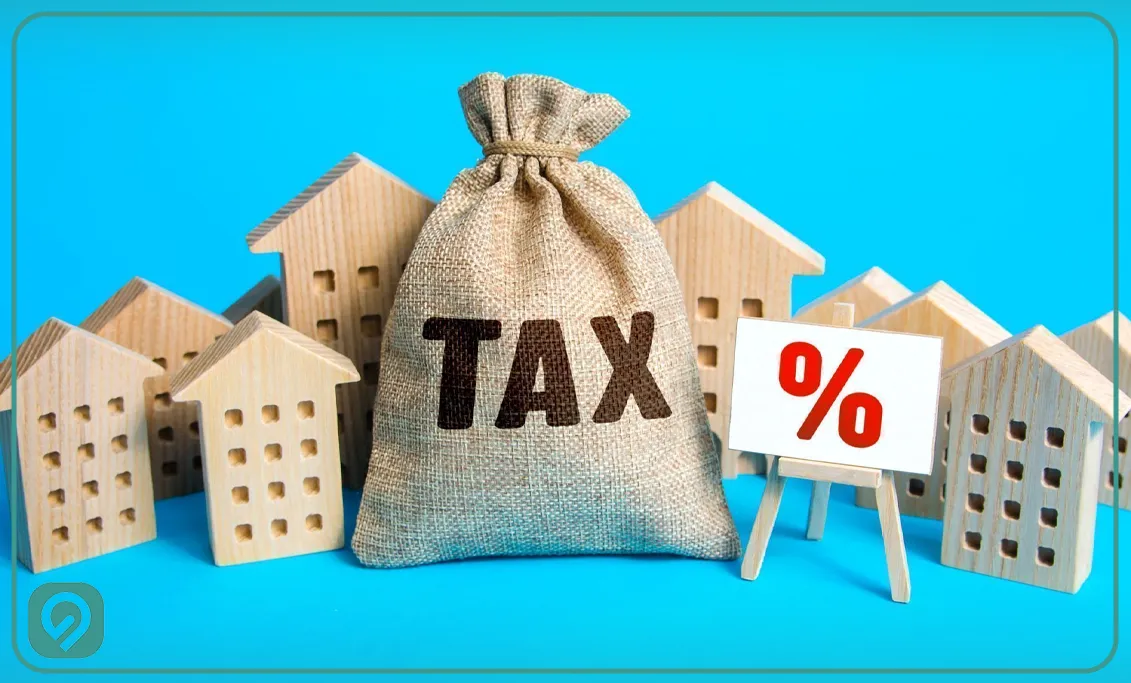The Tax System In UAE & Value Added Tax
The Value added tax ( VAT ) and selective goods tax represent one of the main tax systems in the UAE, as they are imposed on some specific services and goods.

The tax system in the Emirates
The United Arab Emirates is characterized by a unique and simplified tax system, as it seeks to encourage investment and achieve economic development in the country. The UAE is one of the few in the world that does not impose income taxes on individuals and companies on a national scale.
This unique tax system is attributed to the government's strategy of economic diversification and attracting foreign investment. In this context, value added tax ( VAT ) and selective goods tax represent one of the main tax systems in the UAE, as they are imposed on some specific services and goods.
The UAE tax system is characterized by simplicity and transparency, which makes it attractive to individuals and companies wishing to invest and live in the country. The government constantly seeks to improve and develop this system to ensure its sustainability and contribute to strengthening the national economy.
The tax system in the UAE is characterized by simplicity and facilitation with regard to real estate. As of the date of my knowledge in January 2022, the UAE does not impose direct taxes on real estate property for individuals. However, there are some fees and taxes to consider when purchasing and owning real estate:
- Registration fees: Registration fees must be paid when registering the property with the local land department. These fees depend on the value of the property and vary from one emirate to another.
- Transfer fees: If ownership of the property is transferred from one person to another, transfer fees must be paid. These fees vary according to the value, type, and emirate.
- Value Added Tax (VAT): VAT is charged on some services and goods in the UAE. With regard to real estate, the tax is applied to real estate-related services such as real estate brokerage and maintenance services.
- Maintenance Fees: Property owners may have to pay an annual maintenance fee if they live in an apartment community that provides shared services such as security, maintenance, and trash.
- Rent: If you own a property and want to rent it out, you may have to pay income tax on the rent. Tax rates depend on local law and government policies.
It is always best to consult a local tax attorney or consultant to understand current tax laws and regulations and adhere to real estate terms and conditions. You should also monitor local tax developments as laws may change over time.
VAT in Dubai
Value Added Tax (VAT) is a consumption tax imposed on goods and services in the United Arab Emirates and includes the Emirate of Dubai. VAT was implemented in Dubai and all emirates of the country starting January 1, 2018. This move is part of the government's efforts to diversify revenue sources and enhance economic sustainability.
VAT is a small percentage added to the final price of goods and services. The standard rate of VAT in the UAE is 5%, which is a fixed rate that does not change on most goods and services.
One of the basic aspects of VAT in Dubai:
There are some exceptions for goods and services that are not taxed, such as residential housing, basic education, and health services.
- Business Registration: Businesses must register for VAT if their annual revenue totals AED 375,000 or more. They must also submit tax reports and returns regularly.
- Exemption: Some companies have the right to submit a request to benefit from the value-added tax exemption if the specified conditions are met.
- Compliance and monitoring: Individuals and companies must adhere to value-added tax systems and ensure that the tax is collected from customers and delivered to the tax authorities.
- Economic Benefits: VAT contributes to providing additional sources of government revenue through economic benefits, enhancing financing of infrastructure and public services.
How much is VAT in the UAE?
Value Added Tax ( VAT ) in the UAE is 5%. This means that 5% of the value added is added to the price of goods and services covered by the tax. This represents the standard and fixed rate of direct tax on most goods and services in the country.
The 5% rate is applied to many goods and services, including consumer goods, professional services, food and beverages, household items, and many other goods and services.
VAT was implemented in the UAE effective January 1, 2018. It is part of the government's strategy to diversify revenue sources and enhance economic sustainability. The tax system is designed to be simple and streamlined, making it convenient for individuals and businesses alike.
Sectors exempt from paying VAT in the United Arab Emirates
In the UAE, VAT covers most goods and services, but there are some exceptions for some sectors and goods. In general, sectors not subject to VAT include the following:
- Residential sector: VAT is not charged on residential rent or on the sale of residential property. However, the tax is imposed on some services provided to real estate, such as maintenance and repair.
- Basic education: It is the basic educational services that are provided in government schools and private schools recognized by official authorities, and are usually exempt from value-added tax.
- Health Care: Health services provided in hospitals and health facilities are usually exempt from taxes. However, the tax is imposed on some optional healthcare services.
- Oil and Gas Assets: Oil and gas exports are usually exempt from taxes. However, some services associated with the oil and gas industry may be taxed.
- Exported goods and services: Goods and services that are exported outside the UAE are usually exempt from tax.
We should note that these regulations and exceptions can change over time, and it is always best to consult your local tax authorities for more up-to-date information on sectors and goods that are exempt from VAT.
The difference between value added tax and sales tax in UAE
Value-added tax ( VAT ) and sales tax are two different types of taxes on consumption, and they differ in several aspects. The main difference between them includes:
Time point of imposition
- Value Added Tax: Usually levied on multiple stages of production and distribution of goods and services. It is imposed at each stage of these processes based on the value added at each stage.
- Sales tax: Charged on the final sales of goods and services to the end consumer.
The ratio
- Value Added Tax: A percentage is applied to the added value of goods and services at each stage. The ratio is usually low and constant.
- Sales tax: It is imposed at a fixed rate on the final sales value of goods and services.
the range
- Value Added Tax: It applies to a wide range of goods and services and excludes some sectors and services.
- Sales tax: Usually applies to a specific number of goods and services, and may exclude many items.
Litigation
- Value-added tax: It is collected through specialized tax departments and careful follow-up.
- Sales tax: Often collected at the operation level and the burden of litigation falls on businesses.
Registration and collection of VAT in Dubai
Collection of value-added tax ( VAT ) in Dubai and the rest of the United Arab Emirates is carried out in accordance with specific systems and regulations and follow-up by the relevant government agencies. Here's how to collect VAT in Dubai:
- Register
Companies and individuals whose gross annual revenues exceed the specified threshold must register for VAT. The current registration limit is AED 375,000.
Registration can be done through the Federal Tax Authority ( FTA ) website or through its offices in Dubai and the rest of the emirates of the country.
- Submit reports
Registered companies and individuals must submit monthly or quarterly VAT reports, where details of sales and purchases and the amount of tax due are provided. The time limits set for submitting these reports must be met.
- Tax collection
Businesses registered for VAT must collect the tax from customers and customers in every business transaction.
The collected tax is paid to the competent government agencies regularly in accordance with regulations and directives.
- review
Competent government agencies conduct periodic reviews of company accounts to ensure compliance with regulations and correct any potential violations.
- Compliance and reporting
Businesses and individuals must comply with VAT regulations and submit reports regularly to avoid any penalties or fines.
The Federal Tax Authority is committed to guiding and directing individuals and businesses to understand and comply with VAT regulations efficiently. It is essential to cooperate with professionals in the accounting and tax field to ensure complete and correct tax compliance.
Have Question Or Suggestion ?
Please Share Your Thought, To Make It Real
.webp)
.webp)

.webp)
.webp)


.webp)
.webp)


